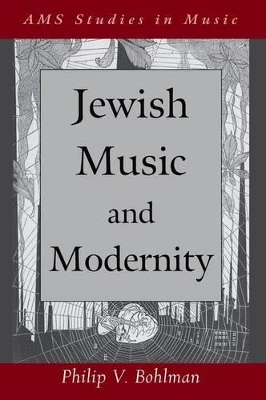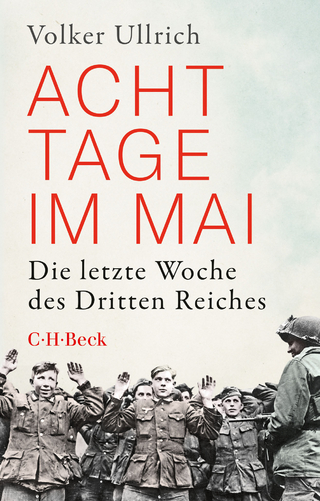
Jewish Music and Modernity
Oxford University Press Inc (Verlag)
978-0-19-994684-6 (ISBN)
Based on decades of fieldwork and archival study throughout the world, Bohlman intensively examines the many ways in which music has historically borne witness to the confrontation between modern Jews and the world around them. Weaving a historical narrative that spans from the end of the Middle Ages to the Holocaust, he moves through the vast confluence of musical styles and repertories. From the sacred and to the secular, from folk to popular music, and in the many languages in which it was written and performed, he accounts for areas of Jewish music that have rarely been considered before. Jewish music, argues Bohlman, both survived in isolation and transformed the nations in which it lived. When Jews and Jewish musicians entered modernity, authenticity became an ideal to be supplanted by the reality of complex traditions. Klezmer music emerged in rural communities cohabited by Jews and Roma; Jewish cabaret resulted from the collaborations of migrant Jews and non-Jews to the nineteenth-century metropoles of Berlin and Budapest, Prague and Vienna; cantors and composers experimented with new sounds. The modernist impulse from Felix Mendelssohn to Gustav Pick to Arnold Schoenberg and beyond became possible because of the ways music juxtaposed aesthetic and cultural differences.
Jewish Music and Modernity demonstrates how borders between repertories are crossed and the sound of modernity is enriched by the movement of music and musicians from the peripheries to the center of modern culture. Bohlman ultimately challenges readers to experience the modern confrontation of self and other anew.
Philip V. Bohlman is a Mary Werkman Distinguished Service Professor of the Humanities and of Music at The University of Chicago. His ethnographic and historical research stretch from the American Midwest across Central and Eastern Europe to the Middle East and South Asia. In addition to his work as a scholar, he is a pianist and the Artistic Director of the Jewish cabaret ensemble, the New Budapest Orpheum Society.
Transcription, Transliteration, And Translation ; Prologue: Before Jewish Music ; PART 1: PLACES OF JEWISH MUSIC ; 1. The Jewish Village: Music at the Border of Myth and History ; 2. The People Without Music History: Rediscovering Jewish Music in the Mediterranean ; 3. East and West ; PART 2: ONTOLOGIES OF JEWISH MUSIC ; 4. Inventing Jewish Music ; 5. Self-Reflecting Self: Jewish Music Collecting in the Mirror of Modernity ; 6. Paths Toward Utopia ; PART 3: BEYOND JEWISH MUSIC ; 7. Parables of the Metropole ; 8. Jewishness in Music: Mirrors of Selfness in Jewish Music ; 9. Staging Jewish Music ; Epilogue: After Jewish Music ; Bibliography ; Discography ; Index
| Erscheint lt. Verlag | 31.1.2013 |
|---|---|
| Reihe/Serie | AMS Studies in Music |
| Zusatzinfo | 35 illus., 5 music ex. |
| Verlagsort | New York |
| Sprache | englisch |
| Maße | 226 x 152 mm |
| Gewicht | 476 g |
| Themenwelt | Kunst / Musik / Theater ► Musik ► Musiktheorie / Musiklehre |
| Geschichte ► Allgemeine Geschichte ► 1918 bis 1945 | |
| Geschichte ► Teilgebiete der Geschichte ► Kulturgeschichte | |
| Sozialwissenschaften ► Soziologie ► Spezielle Soziologien | |
| ISBN-10 | 0-19-994684-1 / 0199946841 |
| ISBN-13 | 978-0-19-994684-6 / 9780199946846 |
| Zustand | Neuware |
| Haben Sie eine Frage zum Produkt? |
aus dem Bereich


